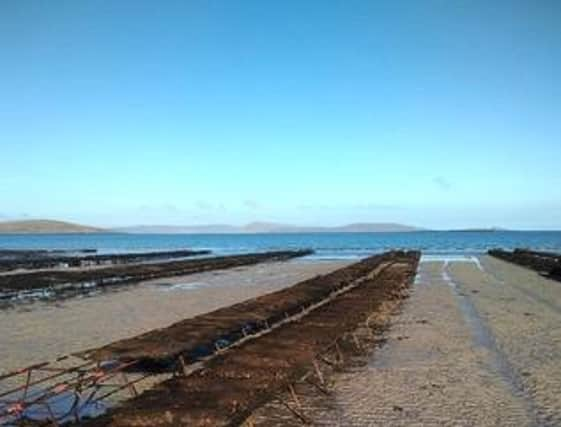Costs see Barra oyster business change tack


Traigh Mhor Oysters, which trades as Isle of Barra Oysters, has applied to planners at Comhairle nan Eilean Siar to install 15 blocks of trestles for oyster production on the foreshore at a site adjacent to Sgeir Mhor at Traigh Mhor in the north of the island, along with a proposal to reposition its existing oyster grading raft close to the new development site.
The equipment proposed for the site will be trestles 4m long and 1.3m wide, arranged in blocks of 20 with 5m gaps between the blocks to allow access by tractor.
Advertisement
Hide AdAdvertisement
Hide AdThe company, founded in 2008, has been farming oysters on two adjacent sites at Ardmhor and currently produces 500,000 oysters per annum.
The proposal could see the company gain consent for a further 1.3 hectares of foreshore, with plans to transfer up to 1.5M oysters from its current off-shore sites to the new site in the first few months of operation. Most of their current stock will be harvested over the next year, with the aim of producing up to 60 tonnes of oysters per year thereafter.
Gerard MacDonald of Isle of Barra Oysters said the company sells most of its oysters through the Scottish Shellfish Marketing Group, with most going to UK restaurants and supermarkets and some to the Far East.
On the issue of the impact of Brexit on his business, Mr MacDonald stated: "We cannot compete with the EU countries on production costs. It has always been very hard to sell into Europe, with or without Brexit. The impact of Brexit for us is that we have to buy most of our equipment from Europe and the prices have escalated initially due to exchange and now importation costs."
Advertisement
Hide AdAdvertisement
Hide AdThe company's planning application states that the shore development will be submerged at all-but low water in Spring tides, which will also be the only time at which there will be activity on the site, and the move to shore-based culture will reduce the distances it has to move stock to and from its grading station, and eliminate boats from its operation.